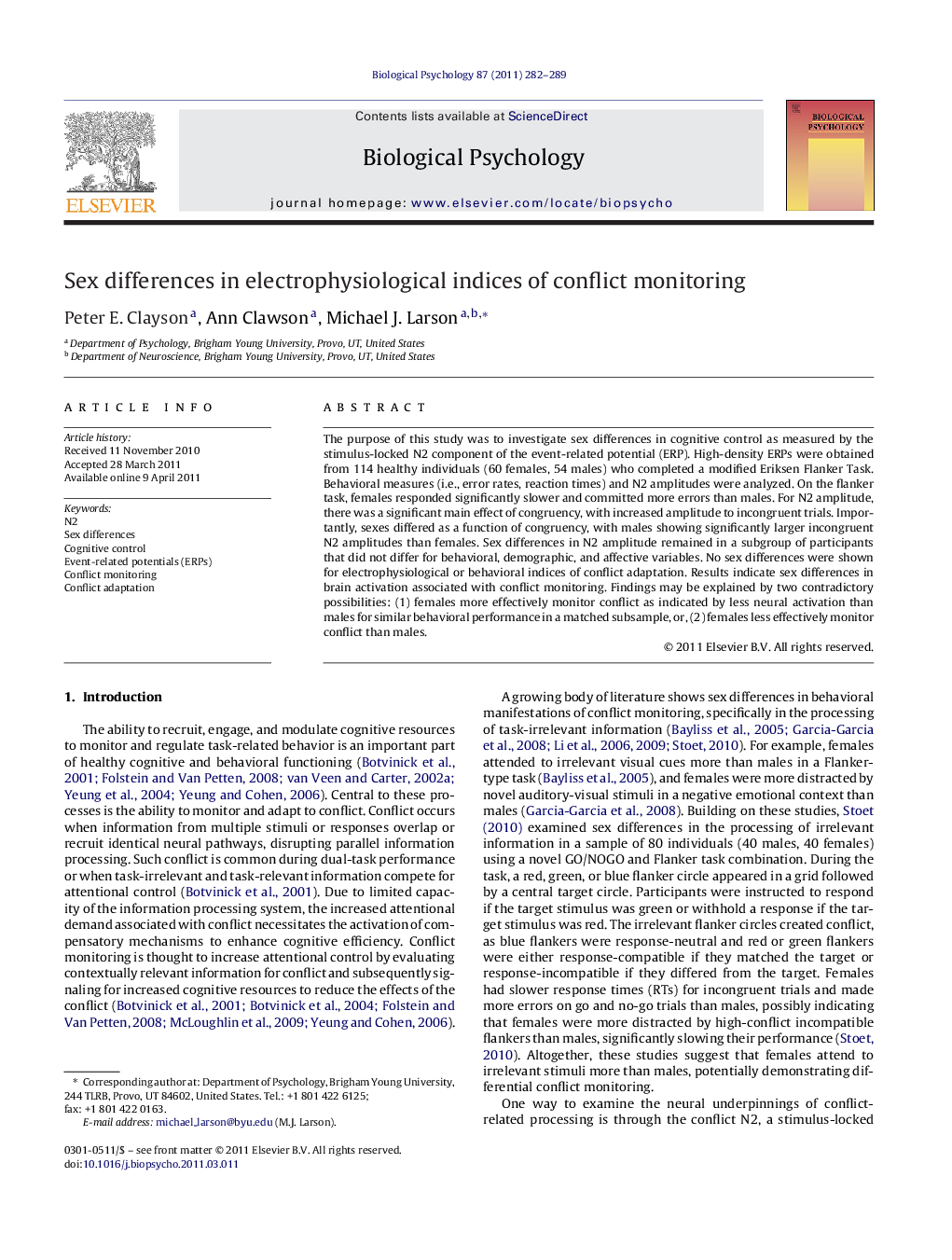| Article ID | Journal | Published Year | Pages | File Type |
|---|---|---|---|---|
| 921168 | Biological Psychology | 2011 | 8 Pages |
The purpose of this study was to investigate sex differences in cognitive control as measured by the stimulus-locked N2 component of the event-related potential (ERP). High-density ERPs were obtained from 114 healthy individuals (60 females, 54 males) who completed a modified Eriksen Flanker Task. Behavioral measures (i.e., error rates, reaction times) and N2 amplitudes were analyzed. On the flanker task, females responded significantly slower and committed more errors than males. For N2 amplitude, there was a significant main effect of congruency, with increased amplitude to incongruent trials. Importantly, sexes differed as a function of congruency, with males showing significantly larger incongruent N2 amplitudes than females. Sex differences in N2 amplitude remained in a subgroup of participants that did not differ for behavioral, demographic, and affective variables. No sex differences were shown for electrophysiological or behavioral indices of conflict adaptation. Results indicate sex differences in brain activation associated with conflict monitoring. Findings may be explained by two contradictory possibilities: (1) females more effectively monitor conflict as indicated by less neural activation than males for similar behavioral performance in a matched subsample, or, (2) females less effectively monitor conflict than males.
► Sex differences in cognitive control were investigated using the N2 component of the event-related potential. ► Males demonstrated larger N2 amplitudes than females. ► No sex differences were demonstrated for N2-related conflict adaptation effects. ► Results indicate potential sex differences in conflict-monitoring brain activation.
